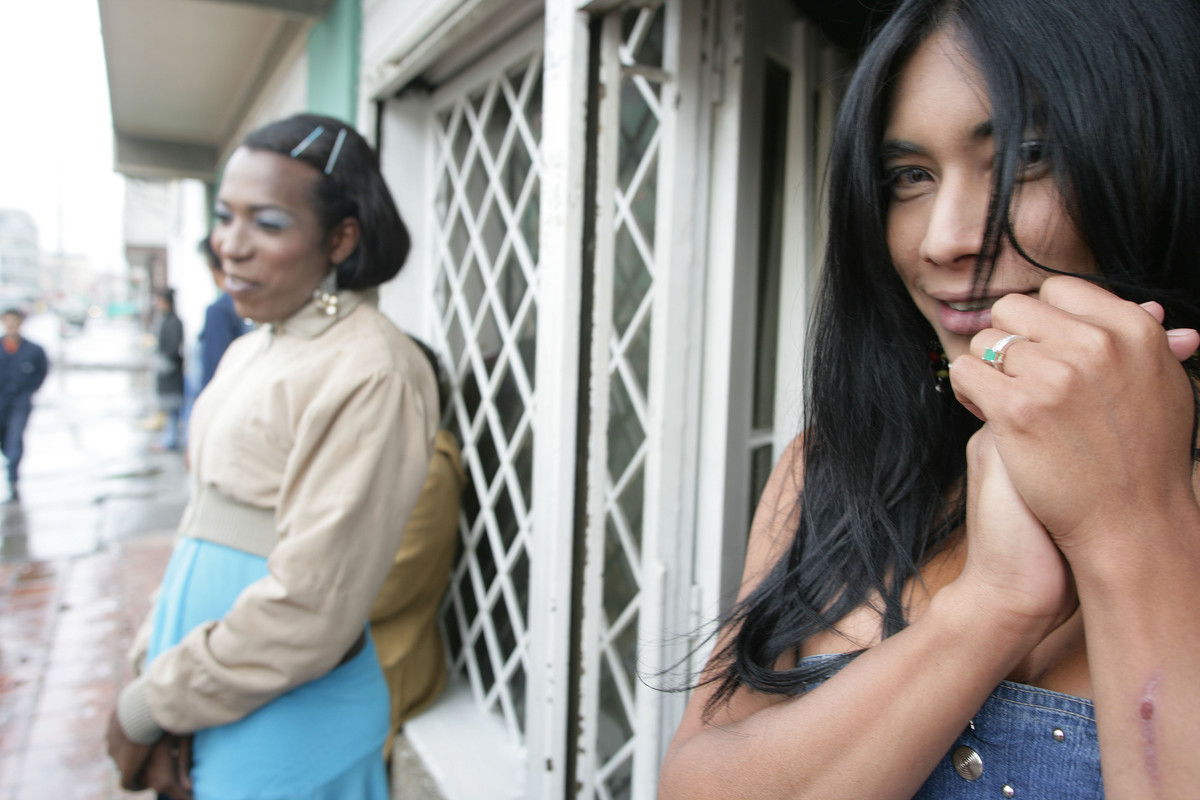
| 09 June 2016
Doortje Braeken receives lifetime achievement award
The World Association of Sexual Health (WAS) has awarded Doortje Braeken – IPPF’s Senior Adviser on Adolescents, Gender and Rights, Programmes & Technical - their prestigious individual Gold Medal in recognition of her lifetime’s contribution to sexual health. She will be presented with the honour at an award ceremony at the biennial WAS Congress in Singapore this July. Doortje tells us what this award means to her and about her career promoting the sexual rights of young people. How significant is this award for you? It’s very significant because WAS is serious about sexual rights and it has a wide ranging membership – including sexologists, neurologists and educators and those working in erotica, the whole spectrum of sex is represented there. They acknowledge how important it is in people’s lives. Why have you won? I’ve been a sex educator since 1984 when I was working for the Dutch Member Association (now known as Rutgers WPF), promoting a much more serious approach to sexology education. I worked in Romania, Eastern Europe and Central Asia promoting sexual rights for young people and fighting for youth participation in our programmes. Why did you choose sex education? Once I had my children I found it hard to juggle motherhood and my work at university – I saw two jobs advertised: one for traffic safety and one promoting safer sex. I applied for and then got both jobs. I worked in both for a while and found promoting safe sex more interesting so I made it my full time career. At that point the Dutch Member Association was beginning to take a more professional approach to sexuality education, since then every working year has been different. I was asked to write a sexuality education manual for IPPF and then was asked to work with the Federation promoting the sexual rights of young people. What are you proudest of? I’m proudest that I’ve helped change IPPF’s attitude to young people – no longer seeing them as passive recipients of services but as genuinely equal partners. What’s next? I have two dreams: Firstly, I’d like to see IPPF promote its sexuality education agenda, but to make it attractive and, yes, ‘sexy’ for young people otherwise we’re in danger of losing their interest. It shouldn’t be just about warning them of the dangers of risky sex, but about their sexual rights and how they can enjoy them. Also, I’d like to revisit the young people I’ve worked with in the past and see where they are now. Some of our youth workers have gone on to work for the Ministry of Youth in Sri Lanka and at the Regional Council in Europe. Some of them are parents now, I’d love to know what they learned here and how have they used it in their lives. I’ve spent a lifetime investing in youth participation - it would be fantastic to see what impact it has had in individual’s lives. It’s been an exciting journey and I have met so many amazing people on my way. I wouldn’t have achieved anything without the hundreds of young people I worked with in IPPF, from a princess in Jordan to a young herder in Mongolia, who were both struggling with the question whether it was OK to masturbate, from Lena from Lebanon who had the courage take a stand for abortion rights and was almost expelled from her country, to trafficked girls in Syria, a young volunteer in Nepal who asked us to schedule our meetings based on the constellation of the stars (if we held the meeting then, she didn’t have to get married) to young sex workers in Indonesia and Surinam, trans boys in Bangladesh, young midwives in Siberia and young parliamentarians in the UK and Finland. And there are others who made my journey easy and so enjoyable; Esther Corona of WAS, Carmen Barosso of IPPF, Chandra Mouli of WHO and Mona Kadbey of UNFPA, who all mentored me and gave me the confidence to push the sexual rights agenda for young people forward.

| 09 June 2016
Webinar: Addressing SRH and HIV needs among sex workers
“Addressing sexual and reproductive health (SRH) and HIV needs among key populations: Sex workers - the case of Uganda” took place on Thursday, 18 June 2015. The German BACKUP Initiative in collaboration with IPPF funded a three-year project, “Shadows and Light”, which addresses the sexual and reproductive health (SRH) and HIV needs of key populations at higher risk of HIV within four IPPF Member Associations (MAs). This included a focus on transgender people in India; sex workers in Uganda; people who use drugs in Kenya; and men who have sex with men in Cameroon. This webinar series is highlighting the importance of addressing SRH within HIV programmes for key populations, and how Global Fund to fight AIDS, TB and Malaria (Global Fund) is integral to their success and sustainability. Each webinar session will focus on one key population. Facilitated by IPPF and the German BACKUP Initiative, the webinars will be held in cooperation with key population networks or organizations; the Global Fund; and IPPF MAs. The first webinar was held on 26 March: “Transgender People: The Case of India”. The second webinar focussed on “Sex Workers: The Case of Uganda”. Besides highlighting the importance of SRH and HIV linkages including integrated service provision for sex workers, the webinar aimed to: introduce the SRH components of the consolidated WHO guidelines on HIV prevention, diagnosis, treatment and care for key populations, and the Sex Worker Implementation Tool (SWIT); discuss the main barriers and challenges sex workers face to access SRH and HIV services; understand how addressing SRH within HIV programmes and services funded by the Global Fund is possible; and learn from country-level experiences about successful interventions, challenges and recommendations. Speakers included Anlina Sheng from the Global Network of Sex Work Projects (NSWP), Denis Bakomeza from Reproductive Health Uganda (RHU), and Ed Ngoksin from The Global Fund to Fight AIDS, Tuberculosis and Malaria. The presentation slides are available to download.

| 09 June 2016
Changing the trajectory of three epidemics
At the 68th World Health Assembly gets underway in Geneva, IPPF Director General Tewodros Melesse will take part in a panel addressing ‘Changing the trajectory of three epidemics - HIV, viral hepatitis and sexually transmitted infections - through the development of global health sector strategies.’ As the world looks to 2030, and prepares to meet the challenges of an ambitious set of Sustainable Development Goals, the World Health Organization is developing three global health sector strategies to cover HIV/AIDS; viral hepatitis; and sexually transmitted infections (STIs). The strategies will cover 2016-2021 and will be finalized for consideration by the 69th World Health Assembly in 2016. These health issues pose major public health burdens for all regions and will be key elements of the post-2015 health agenda, but progress remains uneven and inequitable. The session will hear how Member States and partners are approaching new strategic opportunities to change the trajectory of their responses, ensure linkages across the three areas, and make use of emerging innovations. The panel is emphasising the importance of linkages and integration between HIV, viral hepatitis and STIs. While three separate strategies, IPPF will be emphasising the importance of linkages between HIV, viral hepatitis, and STIs interconnection between these issues and believes real progress will only be made through simultaneous action and integration. IPPF has practical experience of integrating services and working with key populations and young people, illustrating that integration is not only possible, and beneficial, but is already happening on the ground. IPPF will welcomes increased focus on health systems and universal health coverage, however specific health issues such as these require a coordinated and bespoke response. We need to build on the progress that vertical interventions have made. IPPF will also underline the importance of global action and attention on STIs, which has not received the coverage and support of other strategies. This is a great opportunity to renew focus on STIs, as the prevention, screening and management of STI are key components of HIV prevention and care. IPPF will emphasise the need for people-centred and rights-based approaches – for example not just looking at viral load suppression, but at the need to ensure quality of life for people living with HIV. IPPF will be calling on Member States to be bold and courageous to make real progress in these three intimately intertwined issues. Greater integration of these three health areas has the potential to reduce costs, improve efficiency and lead to better outcomes.

| 09 June 2016
Webinar: Addressing SRH and HIV needs among transgender people
“Addressing sexual and reproductive health (SRH) and HIV needs among key populations: Transgender people - The case of India” took place on Thursday, 26 March 2015. The German BACKUP Initiative in collaboration with IPPF funded a three-year project, “Shadows and Light”, which addresses the sexual and reproductive health (SRH) and HIV needs of key populations at higher risk of HIV within four IPPF Member Associations (MAs). This included a focus on transgender people in India; sex workers in Uganda; people who use drugs in Kenya; and men who have sex with men in Cameroon. This webinar is part of a series highlighting the importance of addressing SRH within HIV programmes for key populations, and how Global Fund to fight AIDS, TB and Malaria (Global Fund) is integral to their success and sustainability. Each webinar session will focus on one key population. Facilitated by IPPF and the German BACKUP Initiative, the webinars will be held in cooperation with key population networks or organizations; the Global Fund; and IPPF MAs. This first webinar focussed on “Transgender People: The Case of India”. Besides highlighting the importance of SRH and HIV linkages including integrated service provision for transgender people, the webinar aimed to: introduce the SRH components of the consolidated WHO guidelines on HIV prevention, diagnosis, treatment and care for key populations; discuss the main barriers and challenges transgender people face to access SRH and HIV services; understand how addressing SRH within HIV programmes and services funded by the Global Fund is possible; and learn from country-level experiences about successful interventions, challenges and recommendations. Speakers included JoAnne Keatly from the Center of Excellence for Transgender Health and Nisha Jagdish from the Family Planning Association of India. The presentation slides are available to download.







